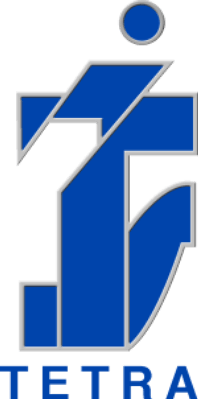Introduction to PHP
PHP, which stands for Hypertext Preprocessor, is a popular scripting language primarily used for web development. It was created by Rasmus Lerdorf in the mid-1990s and has since become one of the most widely adopted languages on the web. PHP is specifically designed for server-side scripting, which means it runs on a web server and generates dynamic web content.
One of the key reasons for PHP's popularity is its ease of learning and use. It features a simple and intuitive syntax, making it accessible to beginners and experienced developers alike. Additionally, PHP is compatible with various operating systems and can be seamlessly integrated with HTML. This allows developers to embed PHP code directly within web pages, enabling dynamic content generation.
Moreover, PHP has a vast and active community of developers who contribute to its growth and share their knowledge. The availability of extensive documentation, tutorials, and online resources makes it easier for developers to learn and troubleshoot PHP-related issues.
Benefits of using PHP
- Easy to learn and use, with a simple and intuitive syntax.
- Wide adoption and popularity, making it a language with extensive community support and resources.
- Versatility and flexibility allow PHP to be used for various purposes, such as server-side scripting, command-line scripting, and web development.
- Extensive frameworks and libraries are available, such as Laravel, Symfony, and CodeIgniter, which provide robust features and speed up development.
- Seamless integration with HTML, enabling dynamic content generation and easy embedding of PHP code within web pages.
- Strong database integration capabilities, supporting various databases like MySQL, PostgreSQL, and Oracle.
- Efficient performance with the latest PHP versios, optimised for speed and scalability
- Open-source nature, allowing customization and extension of PHP's functionality.
- Continuous development and updates ensure regular bug fixes, security patches, and new features.
- An abundance of job opportunities and career prospects for PHP developers.
- Future-proof language, with ongoing development and enhancements in PHP's ecosystem.
Why PHP is popular?
PHP has gained immense popularity among developers for several compelling reasons. First and foremost, PHP is easy to learn and use, thanks to its beginner-friendly syntax and low learning curve. Developers can quickly start coding and building web applications with PHP, even with limited programming experience.
The extensive community support and resources available for PHP contribute significantly to its popularity. The large PHP developer community actively contributes to its growth, providing comprehensive documentation, tutorials, and online forums for assistance. This collective knowledge fosters a collaborative environment and enables developers to solve problems effectively.
Another factor driving PHP's popularity is its versatility. PHP can be used for various purposes, including server-side scripting, command-line scripting, and web development. It integrates seamlessly with HTML, allowing developers to embed PHP code within web pages and generate dynamic content effortlessly.
The availability of powerful frameworks and libraries, such as Laravel, Symfony, and CodeIgniter, further enhances PHP's appeal. These frameworks provide robust features, streamline development processes, and promote best practices, enabling developers to build scalable and efficient applications.
Future of PHP
- Modernization and Standardisation: Efforts are being made to modernise PHP by adopting best practices and embracing modern programming paradigms. This includes the use of design patterns, improved error handling, and standardised coding practice, enhancing code quality and maintainability.
- Focus on Performance: PHP developers are continuously working on improving the language's performance. Efficiencies gained from PHP 8, optimisations, and advancements in server technologies ensure faster execution and reduced resource consumption.
- Increased Security: The PHP community is dedicated to enhancing the security aspects of the language. Regular security updates and patches address vulnerabilities, making PHP a more secure choice for web development.
- Community Contributions: The strong PHP developer community continues to contribute to the ecosystem by developing new extensions, packages, and tools. These contributions enrich the PHP development landscape and facilitate easier and more efficient development processes.
- Integration with Modern Technologies: PHP is adapting and integrating with modern technologies and frameworks, allowing developers to build robust and scalable applications. For instance, PHP can be used in conjunction with popular frontend frameworks like React and Vue.js.
Use of PHP in CMS
PHP plays a pivotal role in the development of content management systems (CMS) such as Joomla, making it a popular choice for building dynamic and interactive websites. With its versatile and easy-to-use nature, PHP provides a solid foundation for creating customizable templates that enable website owners to achieve a unique and visually appealing design. Additionally, PHP facilitates user authentication and access control, ensuring that only authorized individuals can modify the content of a website.
Moreover, PHP's integration with databases allows CMSs like Joomla to efficiently store and retrieve data, offering seamless content management capabilities. Furthermore, PHP's vast library of pre-built functions and frameworks empowers developers to implement various functionalities, including plugins and extensions, enhancing the flexibility and extensibility of the CMS.
Use cases of PHP
PHP is commonly used for a wide range of applications, including web development, e-commerce platforms, content management systems (CMS), and social networking sites. It is well-suited for building dynamic and interactive websites due to its server-side scripting capabilities. PHP's flexibility enables developers to create custom web applications, handle user authentication and data management, and integrate with various databases.
Some notable large-scale applications built with PHP include WordPress, a popular CMS powering millions of websites, Facebook, which initially used PHP as its primary language, and Magento, a widely used e-commerce platform. These examples showcase the scalability and robustness of PHP in handling complex and high-traffic applications.
Contact us to learn what PHP services might look like for your organisation. Allow our representative to either call you in 24 hours or email you for more details about our services - Click here.





